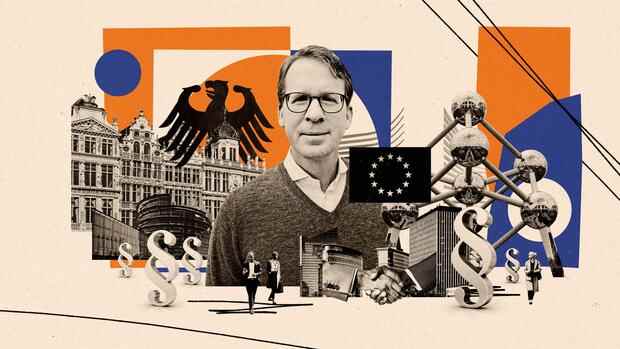Every week, Moritz Koch, head of the Handelsblatt office in Brussels, analyzes trends and conflicts, regulatory projects and strategic concepts from the inner workings of the EU. Because anyone interested in business needs to know what’s going on in Brussels. You can reach him at: [email protected]
From the sick man of Europe to the growth star and back? A golden decade is coming to an end for the German economy. The 2010s were years of full employment and solid corporate profits; wages rose, prices barely. Cheap Russian gas and the booming Chinese market drove German industry to peak performance and shielded it from the consequences of the global financial crisis. Both are over now.
The energy partnership with Moscow, which has grown over decades, is history, destroying confidence in unlimited growth in China. A double earthquake from the consequences of war and the pandemic has hit the German economy.
Germany’s malaise affects all of Europe. Practically the only indicators still pointing up are prices and interest rates. Unrest is already spreading in Brussels. EU officials know that the mix of falling growth and rising interest rates is poison for monetary union. Is there a threat of a repeat of the euro crisis – with the difference that this time the Federal Republic would fail as an anchor for stability and growth? That would be the nightmare scenario for Europe.
There is at least one piece of good news: the prospects for southern Europe are less bleak than they appear at first glance. The Mediterranean countries can hope for a strong summer season. The pent-up wanderlust manifests itself in streams of tourists, among which Europe’s airports, which were just deserted, groan.
Top jobs of the day
Find the best jobs now and
be notified by email.
The prospect for Germany is completely different: like a junkie, the country is put on withdrawal. The phasing out of cheap Russian energy is a done deal, Economics Minister Robert Habeck is pushing ahead with the switch to liquid gas with all his might. Germany should be less susceptible to blackmail in the future. Only: That has its price. Nobody really knows how German industry can maintain its competitiveness under these conditions.
>> Also read here: The risk of a global recession is increasing
Absorbing even this one shock would be a huge challenge for companies. But they don’t have the luxury of focusing on the energy crisis. With the transformation of China under the authoritarian head of state Xi Jinping, the next weaning is imminent.
For a long time it seemed to be a dreamlike partnership: German machine builders supplied what the People’s Republic needed for its industrialization and in return received inexpensive components from China. Both sides increased their prosperity, which pleased manufacturers of German luxury cars in particular. Now Xi’s zero-Covid policy is thwarting the profitable arrangement. To keep the virus in check and cover up the shortcomings of its own vaccination campaign, Xi is stalling the economy.
Container ships are piling up in the port of Shanghai – harbingers of the next supply crisis, which will hit German industry particularly hard. The Federal Republic emerged as a loser from the corona crisis. Deglobalization is now moving from the pandemic to the geopolitical phase – which does not bode well for Germany, which has been accustomed to success. The Federal Republic could soon find itself on the sickbed.
More: War, inflation, slump in growth – How to invest correctly now
